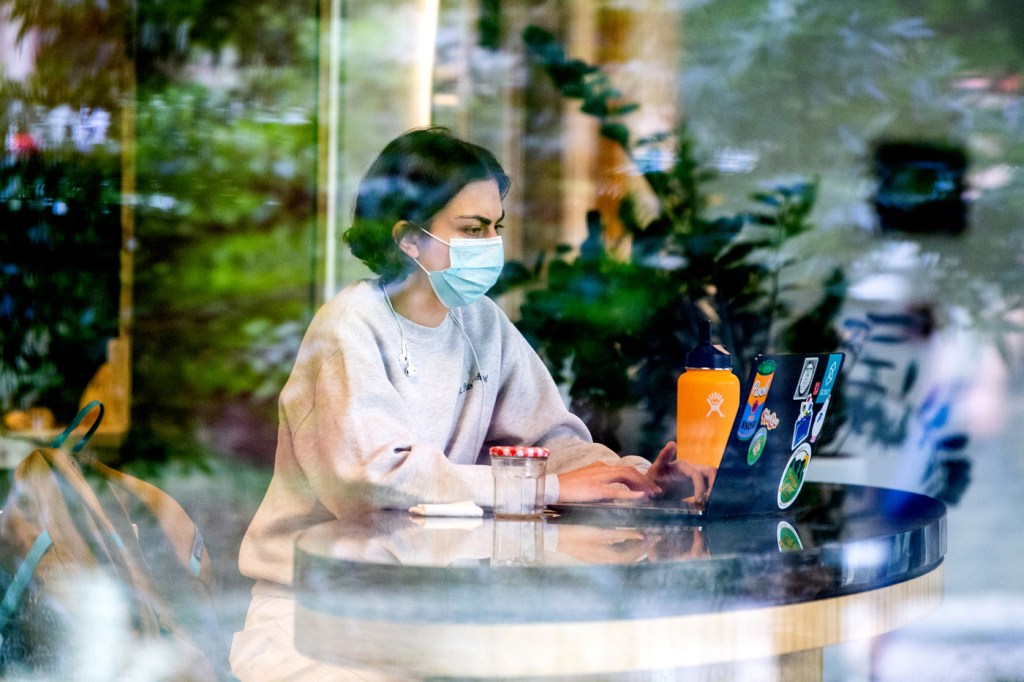Is indoor mask-wearing still popular?

With mostly Democratic-leaning states moving in recent days to end indoor mask requirements—a decision that President Joe Biden says is “premature”—a strong majority of the country supports the continued wearing of face coverings in bars, restaurants, and schools.
A U.S. survey of nearly 23,000 people of varying ages, education levels, and political affiliations finds that 69 percent of them say masks should continue to be required indoors. The biggest support came from people in states such as Hawaii (85%), California, and New York (both at 80%).
The findings suggest masks may remain a routine way of life for some people, either because of high-risk health conditions or to prevent infecting others with the virus that causes COVID-19.

It is an ‘interesting puzzle’ why the CDC continues to press for indoor mask-wearing while states are rolling back their mask mandates, says David Lazer, distinguished professor of political science and computer science. Photo by Adam Glanzman/Northeastern University.
“A large chunk of people will keep them on,” says Northeastern’s David Lazer, university distinguished professor of political science and computer science.
The survey was conducted by the Covid States Project, a collaborative effort by researchers from Northeastern, Harvard, Northwestern, and Rutgers universities. The online public opinion poll concluded near the end of January, just as infections and hospitalizations around the country were showing steady improvement.
Researchers solely focused their questions on indoor mask-wearing requirements, not on vaccines or other pandemic-related restrictions.
California’s indoor mask mandate, which expired on Feb. 15, was instituted in December amid the rapidly spreading and highly contagious omicron variant. Masks are still required indoors for the unvaccinated. People inside hospitals must remain covered as well as anyone who rides public buses and trains.
Masks in California schools remain in effect at least until Feb. 28, at which point health authorities will reassess based on several metrics.
“Masking has been a valuable tool to keep schools functioning when transmission is high,” Dr. Mark Ghaly, California’s top health official, said in a press briefing. The state has had only one percent of the nation’s school closures despite having 12 percent of U.S. schoolchildren.
New York, meanwhile, ended statewide masking requirements earlier in February, but left it up to the discretion of local governments and businesses to continue requiring coverings. The governors of Connecticut, New Jersey, Delaware, and Oregon have relaxed similar requirements.
Biden says those actions are “probably premature, but it’s a tough call.” The head of the Centers for Disease Control and Prevention, Rochelle Walensky, added that “now is not the moment” to drop mask mandates in schools and other public places.
Northeastern’s Lazer says there are multiple disconnects taking place.
“It is an interesting puzzle that the feds are still recommending mask mandates, while at the same time research shows strong support around the country for indoor mask mandates, and yet we see this requirement rollback in many states,” Lazer says.
In a further twist, the public opinion survey found high backing—69% or higher—in several Republican-leaning states, such as Florida, Georgia, and Texas, where mask requirements were actually banned.
“None of those states are overwhelmingly red,” Lazer says, adding it’s a reflection of populations more diverse than most people think.
As a whole, however, Republicans strongly disapprove of indoor mask requirements compared to Democrats (54% to 13%). Disapproval was also strongest in rural areas of the United States compared to cities, where more Democrats tend to live.
The latest trend in blue-state governors ending mask-wearing mandates may be an acknowledgement that people are just ready to move on with their lives. They could also be seen as a political play ahead of the congressional midterm elections in November.
But there are also inherent political risks to the GOP for its anti-mask stance.
“We could see the concern on the Democratic side about being the killjoy party,” Lazer says. “But the data would suggest that there’s political risk to being anti-mask mandate because that is counter to what majorities want.”
For media inquiries, please contact media@northeastern.edu.





